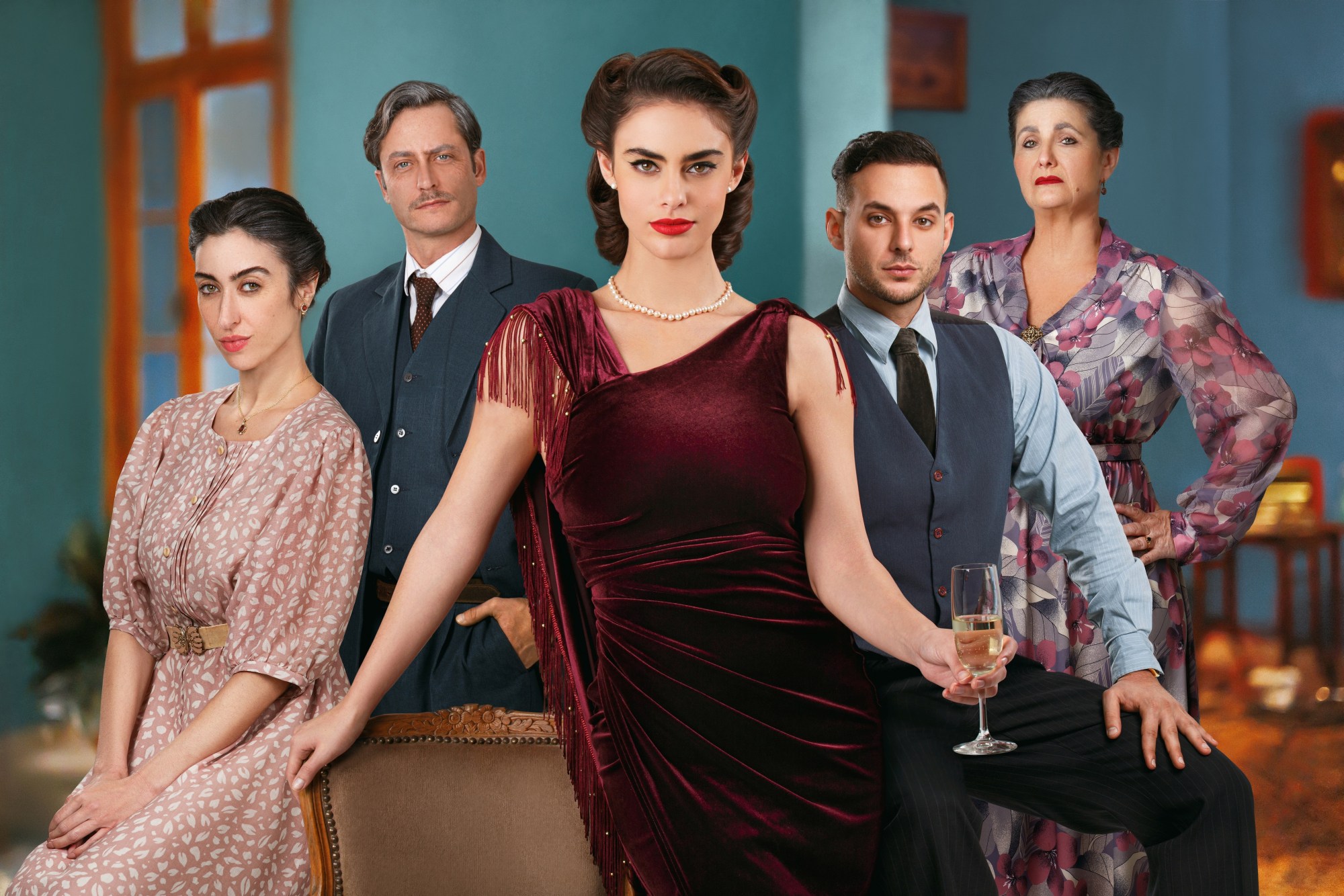
- Interviews
“The Beauty Queen of Jerusalem” Returns to Netflix
Following its acclaimed freshman run, multi-language Israeli period drama series The Beauty Queen of Jerusalem returns for a second season that will premiere on Netflix on July 14, when all 16 new episodes will be made available worldwide.
Adapted from the 2013 best-selling novel by Israeli author Sarit Yishai-Levi, the series revolves around the drama of the tempestuous Ermosa family in 1940’s Jerusalem and is also told through an earlier timeline in 1917, when the young man who will become the patriarch of the family, Gabriel Ermosa (Michael Aloni), has to sort out his future. The Ermosas’ eldest daughter Luna, played by actress Swell Ariel Or, is referred to affectionately as “the beauty queen of Jerusalem,” a rebellious young woman who ends up marrying the neighbor’s son.
The new season finds the newlyweds experiencing a growing strain on their relationship when they enter a bohemian British circle, as the threat of World War II is looming. Meanwhile Luna’s father is still dealing with his past and is now searching for the son he never knew he had from an affair in his younger years; meanwhile, the family shop hits hard times, forcing the women of the family to take matters into their own hands.
The Beauty Queen of Jerusalem premiered in 2021 in Israel, produced by Yes Studios, the originator of such hit shows as Fauda, Shtisel and Your Honor. Picked up by Netflix last year for multiple territories, including the U.S., U.K., France and Spain, the show has won four awards at the 2022 Israeli Television Academy Awards, including Best Daily Drama, and has served as a breakthrough role for Swell Ariel Or.
We caught up with the young actress via phone, as she’s now in Los Angeles promoting the new short film Arava, which had its world premiere last month at the Palm Springs ShortFest and will be screened later this month at the San Francisco Jewish Film Festival.
Where does the new season find Luna?
We now meet Luna as a married woman and she’s trying her best to be a good wife for her husband and to maintain her business of dressmaking. I don’t want to give any spoilers, but it’s not going according to her plan and we’re going to see a lot of obstacles in their relationships. Let’s just say we touch upon the tough subject of domestic violence, to the point where when they aired this season in Israel, they ran a special disclaimer with a hotline phone number for an organization that you can call if you’re in trouble. And we also had warnings at the top of the episodes, because they contain a lot of hard content.
What’s it like filming these difficult scenes?
I think that you have to know at any point why you’re doing this and why it’s so important to tell this story. Although the show takes place in the 1940’s, these things are still happening to this very day and there are a lot of women that this is their story and you have the ability to make it more accessible to the audience, make them see how it looks, how it feels. When it’s the hardest, that’s when you have to remember it’s so important to tell it and be faithful to the story. You can’t protect anything just because it’s ugly and scary. That’s reality. But we had a lot of space for those hard scenes. And I’m so lucky to have Israel Oglabo, who play my character’s husband, because we are really good friends and we build this relationship out of trust between us. I knew that I’m safe at any given point. And it’s literally just acting for me – we can cut at any point, but there are women all over the world that can’t just stop a scene.
What has the response to the show been like?
People love the show and I get a lot of messages from fans around the world saying that they are obsessed with it and they didn’t even know that there were Jews in Jerusalem long before the Holocaust. They learned so much about history and really connect with the story because for a lot of them, it’s like the story of their grandparents or their families and it’s really beautiful. When you’re on set, it’s like putting on a show, you get some applause at the end from the crew just as quick feedback of what you just did. And the director calls ‘cut’, and on to the next scene. You pour your heart out and give everything but only when it comes only a year or two later, that’s when you’re embraced and I’m getting that from all over the world.
Lastly, tell us about Arava, the short film you’re starring in.
We shot it last year and it’s kind of a long short film, 27 minutes, so to get into festivals was such a huge achievement. It’s a coming-of-age story set in Jerusalem at the beginning of the 2000’s, when the punk wave mixed with the religious wave to create a unique new community of street youth, and it’s centered around two young girls and their journey. We’re actually working on a longer feature film length version. It’s the director Sarah Meital Benjamin’s own personal story, she is so talented, remember her name, she’s going to bring the Oscar home to Israel one day.